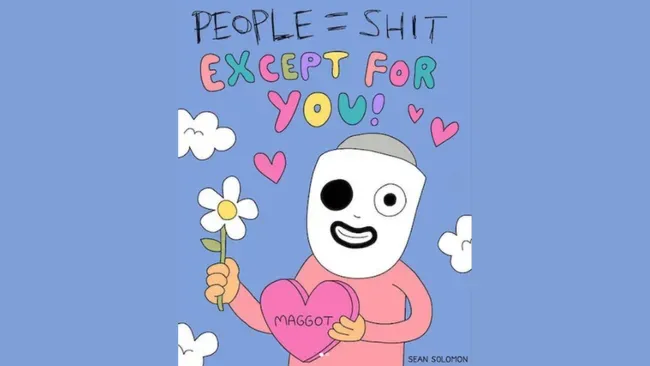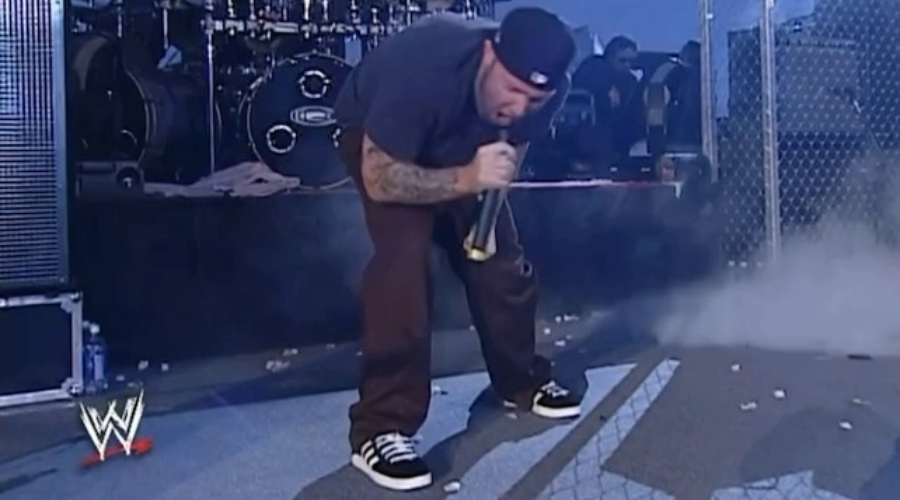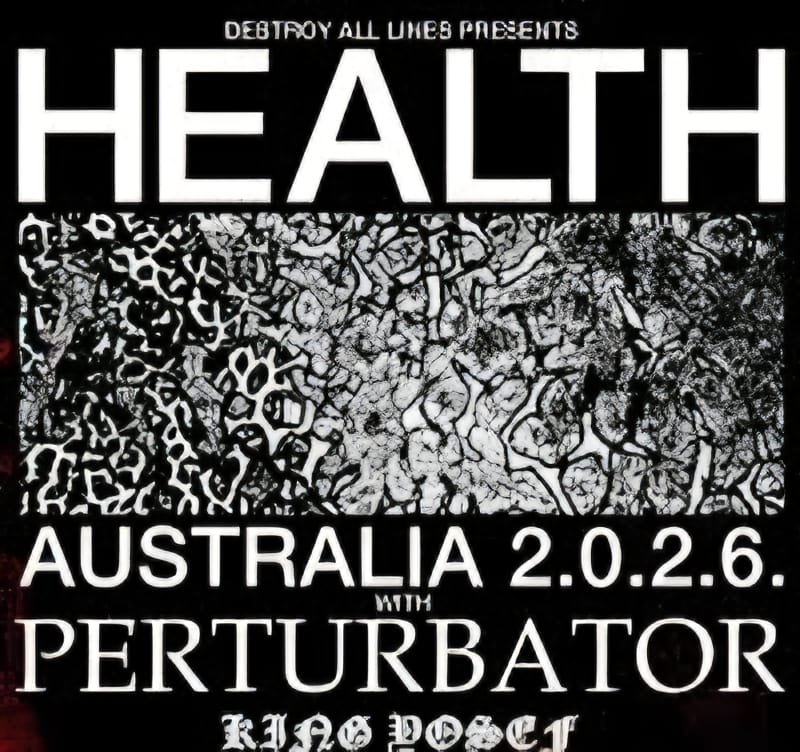Post-grunge was bad. It was a genre predicated entirely on doing what bands like Nirvana, Alice in Chains, and Pearl Jam had already done but with absolutely no qualms about selling out. Now I know what you’re thinking, I am the CEO of nu-metal, the worst genre of all time, but hear me out. Nu-metal, the spiritual cousin to post-grunge, is not bad despite claims to the contrary because it was founded on an idea; finding common ground between metal, industrial, rap, and funk. While nu-metal would certainly end up with some bad music the genre by and large produced incredible, game-changing bands. Post-grunge has none of that. Its biggest bands have no legacy, its smallest bands may as well not exist. That being said, the genre did manage to produce some catchy-ass tunes, a few of which I’d even say go beyond just fun and into something great. Quick note before we get into it, I don’t consider post-grunge to truly start until Creed happened. So Bush, Collective Soul, and Candlebox are all safe. Now grow out your goatee, chug that monster, and punch some drywall - it’s the 15 Greatest (and 10 Worst) Post-Grunge Songs of All Time. — Holiday Kirk
Greatest:
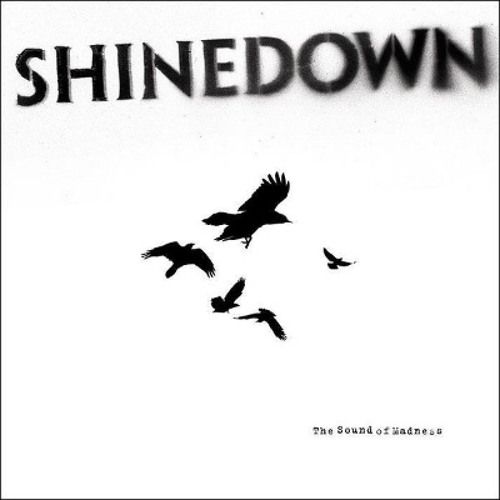
15. Shinedown
"Second Chance"
[Atlantic, 2008]
Released in 2008, “Second Chance” peaked at number seven on the Billboard Hot 100, the last post-grunge song to make it that high, becoming something like a spiritual finale for the sub-genre as post-grunge without big pop hits is hardly post-grunge at all. And fucking sheesh the size of this damn thing. “Second Chance” is an unwieldy monster of a pop production, absolutely stuffed with strings that wouldn’t have been out of place on a Taylor Swift album, hooks, lyrics that make little to no sense (“the man in the moon disappears somewhere in the stratosphere”??) and a climactic drum fill that’s mixed totally different from the rest of the song amounting to a production that in sum-total would have even Max Martin wondering if it was all a bit much. The effect is kinda like one of those combination Baskin Robbins/Dunkin Donuts; just in case post-grunge wasn’t already bad enough for you, well, there’s also a Dunkin Donuts helpfully located inside the same store. But all that aggressive hit-breeding worked, it was a smash with a chorus so epic it simply had to be one. Yeah, it’s more minivan than mosh-pit but that’s post-grunge for you. —HK
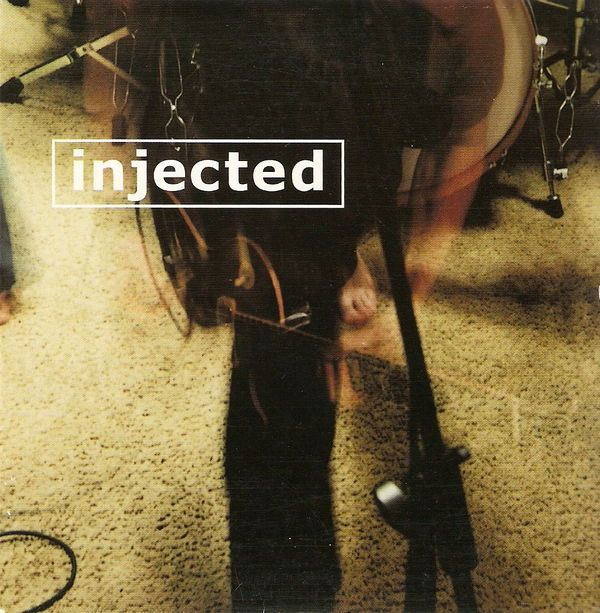
14. Injected
"Faithless"
[Island, 2002]
Upon release in 2002, “Faithless” committed the ultimate post-grunge sin: It flopped, peaking at a pitiful 22 on the US Alt charts. Unfortunately, nothing else really matters in this genre. There was no development deal to catch Injected, Burn it Black would be their first and last album. “Faithless” didn’t catch on, not because it isn’t good - these are some of the best guitar tones you’ll find on this list - it’s because of how casual it comes about its hooks. “Faithless” is confident in itself, not forceful. Consider how aggressive a song like “Second Chance” is to get stuck in your head. It’s like being battered about the face by socks filled with ProTools plugins. “Faithless” on the other hand has an easygoing shimmy to it that even feels a touch glammy– peep the way singer Danny Grady grooves into that chorus (“But it’s my kiiiiiiiind.”) If you give it a minute “Faithless” proves as irresistible as any other song being slid across radio disc jockey desks back then, but as Injected (and Edgewater and Revis and 8stops7) had to learn the hard way even a minute was a minute too many. —HK
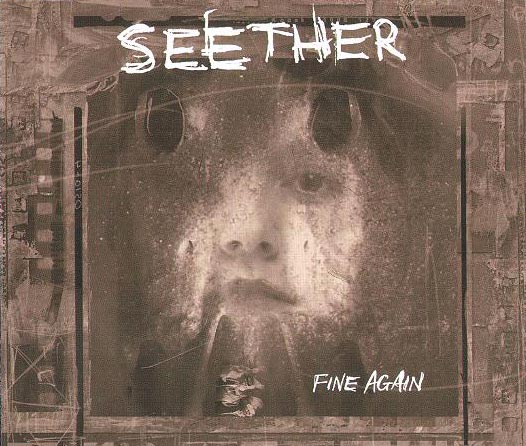
13. Seether
"Fine Again"
[Wind-up, 2002]
Shaun Morgan wants to be Kurt Cobain real bad. His South African outfit’s debut album Disclaimer is packed so full of Nirvana worship that it almost bursts, from the flange-laden lead guitar tones to Morgan’s copycat groans. But once we hit lead single “Fine Again,” we see him grasping at something deeper than paint-by-numbers efforts to replicate what made the seminal grunge act so successful. Morgan first wrote the song after his parents' divorce and refined it for years over multiple iterations of the band that would become Seether, resulting in a hooky, irresistible heavy pop hit. Sure, there’s a lot of teenage melodrama to pick apart (“Why try to stay sober / When I’m dying here,” “Too late, I’m in hell,” etc. etc.) but what really sets this song apart is the dogged return to optimism with the central hook–“I am aware now / That everything’s gonna be fine.” What could have been another tired exercise in post-grunge self-pity becomes a reminder to push through the pain, even when it’s hard, especially when it’s hard, because better times are around the corner. I’ve always found this type of song compelling–the song you keep forcing yourself to perform because it reminds you to live in spite of what ails you. In a discography of offerings that largely blend together, “Fine Again” stands out as an unforgettable opening shot from a band capable of much more. — Gabi Brown
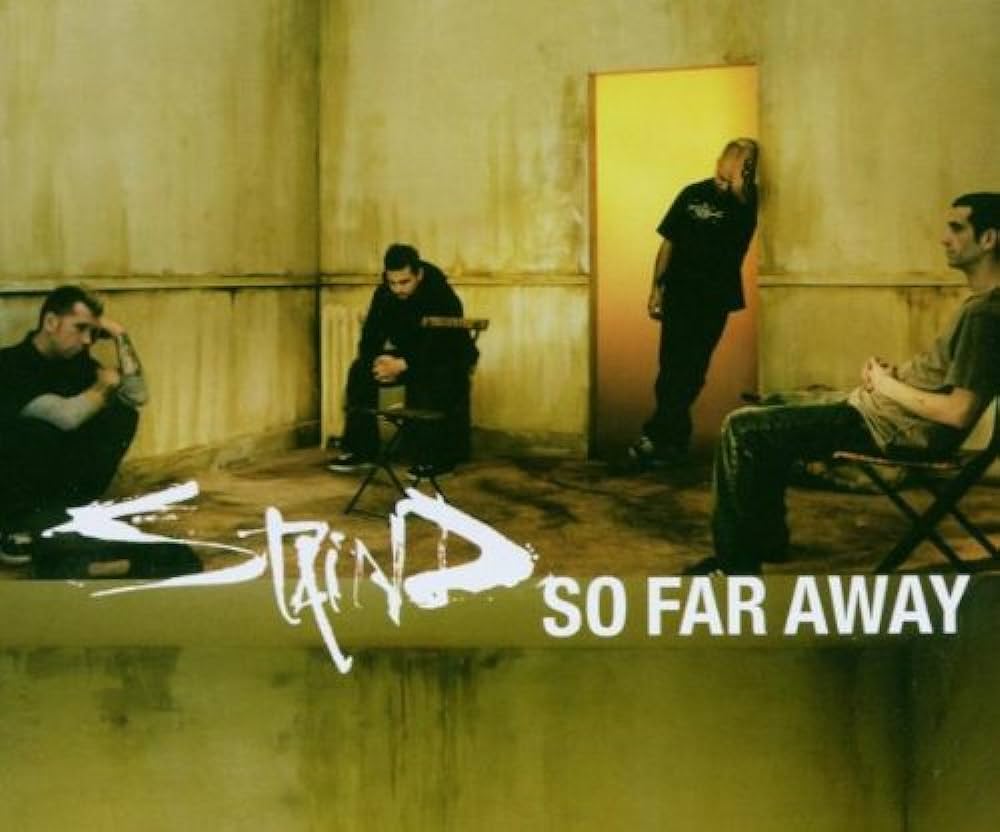
12. Staind
"So Far Away"
[Elektra, 2003]
Staind's 2003 release 14 Shades of Grey is not a good record. Ranging from insufferable preachiness to earnest but cringely-executed Alice in Chains worship, Staind follows up the incredible Break the Cycle with 14 largely forgettable tracks. One standout, however, is lead single “So Far Away,” which finds frontman Aaron Lewis in a refreshing moment of humble sincerity. “I think I’m doing okay,” he muses, and spends most of the song mulling over how far he’s come from the turbulent past reflected on Staind’s three preceding albums. Lewis has always been at his best when he ditches the urge to preach and expresses his emotional state with humility and honesty, and “So Far Away” is no exception to the rule. We have one of the most uplifting songs in the band’s discography, but there’s an anxiety here as well–the understanding that the healing the singer has achieved could disappear at any time. “I’m so afraid of waking,” Lewis confesses at the climax of the song, “Please don’t shake me.” But then we return to the chorus, which leaves us on the brighter note of “I’m not ashamed / To be the person that I am today.” It’s an incredibly well-executed ballad, an ode to healing and self-actualization in a genre full of shallow self-loathing and proudly misogynistic sexuality. It's a glimpse at a kinder version of Staind, and a stark contrast to Lewis's present embrace of self destruction and right wing culture war fanaticism that's all too common in the genre. — Gabi Brown
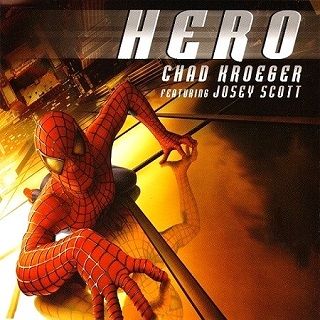
11. Chad Kroeger featuring Josey Scott
"Hero"
[Roadrunner, 2002]
In the late winter of 2002, Chad Kroeger had a dilemma. Post-grunge was at its commercial zenith; the year would end with Creed, Linkin Park, Puddle of Mudd, and fellow Canadians Default all in the Billboard Hot 100, with his own band, Nickelback, astride them all at number one like great, golden, maple-soaked gods. But the rubble was still warm at the site of the World Trade Center, and Spider-Man - New York City’s savior and son - needed a song to show the world that even when towers fall, someone would always be there to catch us. The way forward was clear; only post-grunge, with its twin valences of magnificent grandiosity and magnificent gloom, could soar with the Spider. Casting off his band like a mastodon shaking off a pack of Neanderthals, Kroeger entered the studio with a strike force of post-grunge’s finest: his brother, Nickelback bassist Mike Kroeger; Pearl Jam (and former Soundgarden/Temple of the Dog) drummer Matt Cameron; Theory of a Deadman singer/guitarist Tyler Connolly; and the lead singer of Saliva, Josey Scott. The result was “Hero”, three minutes and twenty seconds of the leanest and most concentrated millennium rock you will ever hear, folded and hammered to a micron’s edge. Featuring all the hallmarks of post-grunge’s imperial phase, both lyrical (references to heaven, flight, blood, the end of the world) and sonic (the brooding, Praetorian pace, Kroeger’s pained vocal, a million-dollar bed of acoustic strumming and electric guitars that pour forth like light through the gates of Valhalla)—not to mention strings courtesy of the Vancouver Symphony Orchestra and the cleanest conga mix this side of The Lion King OST—the song isn’t really 'about' a hero, nor does it function as a coherent call for one, although that’s closer. “Hero” is better read as a kind of heroism fugue state, where the signs and signifiers of heroism swirl amidst a blur of wounded and hopeful emotions. “Hero” is an upward soar through smoke and flame, an arrow from the national experience directly to the billboard charts. “I’ll hold onto the wings of the eagles” Kroeger vows, inviting us to watch him fly away. And watch we did. — Josh Rioux
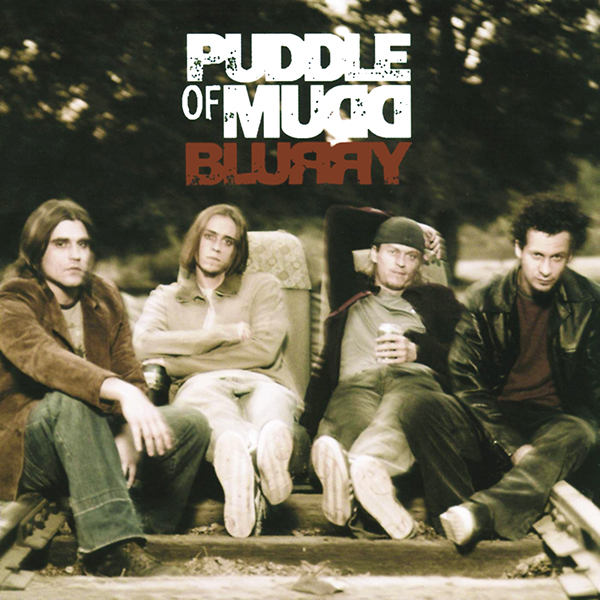
10. Puddle of Mudd
"Blurry"
[Flawless, 2001]
Guitar touch harmonics were everywhere during the post-grunge/nu-metal era; A resonant, crystalline sound that would cut through the mix, clear and distorted alike. On Puddle of Mudd’s custody court anthem “Blurry,” those harmonics are the song’s consummate hook, followed by the melodic swoop of “my whole world surrounds you I stumble and I crawl.” Of all the genre’s Carnival cruise ship Kurt Cobain imitators, Wes Scantlin was particularly shameless, ripping the late singer's diction, drawl, phrasings, everything off and selling it for cheap. So total was this impression that I often speculate that the one time he really needed to nail it he failed so hard because of the divine intervention of Cobain’s ghost, stopping by for some quick revenge. Fortunately, his momentary ability to craft a decent hook succeeds here and the product was effective enough to score the band their only Top 10 Hot 100 hit. But really, Scanlin’s major contribution to “Blurry” is just staying out of that acoustic guitar's way for a couple of bars. — HK
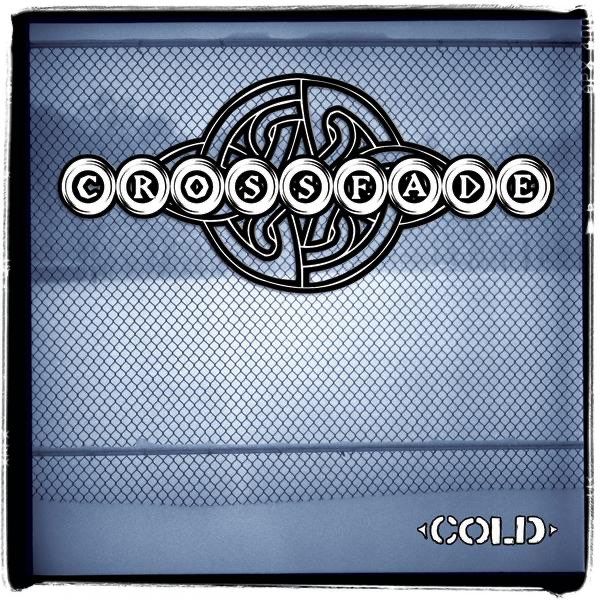
9. Crossfade
"Cold"
[Columbia, 2004]
There was a spark of light in 2004 that simply hit a different wavelength. It was something to hold onto during radio’s vice grip on the culture. It burned out as quickly as it ignited, equalized, and compressed to deliver the most resounding song intro that those middle schoolers ever felt:
"Looking back - "
*SNARE*
The legend of Crossfade is familiar to millions, cherished and hated with equal passion, their career a kick-off fit to mercy kill butt rock for the remainder of the 00’s. (Did you know they’ve been a group since ‘91?) "Cold" indicates that if you look hard enough. The track was written to have tendrils in mind, it’s an 'I fucked up' song, and god knows we’ve all fucked up. Through that lens lies an honest sense of resonance. The track isn’t squished to hell like the album opener, it isn’t vying for “Bring Me to Life” levels of grandiosity, and it’s not a happy ending. Production-wise, they hit a nerve, massive distortion, and beast mixing only amplify the adhesive songwriting. Dual voicings were huge in this era, and that chorus is untouchable. You can hate this song with all the fervor you can find, but it will infect you. You will sing to some extent or another, therein lies the magic. The furnace of time has forged a diamond with this one. "Cold" is how you reinvent the wheel when the current wheel is working just fine. It’s an aural reflection of memory and connection, beaded together with the most hilarious music video I've seen in years. It really is the meme that never was. The female lead cannot stop the butt-grunge, because no one can stop the butt-grunge, because he is really sorry. He never meant to be so cold. Goddamnit, I believe him. — balloonxm
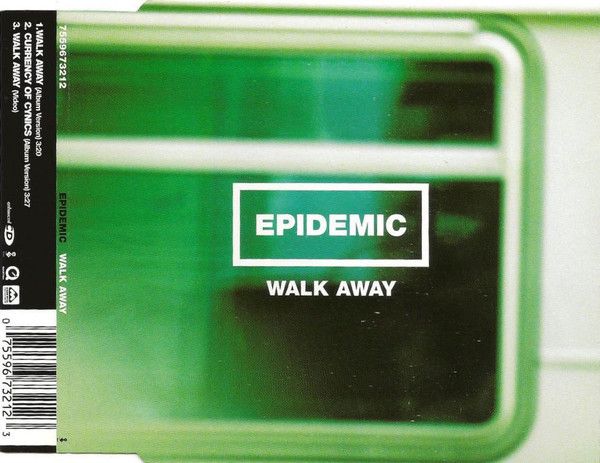
8. Epidemic
"Walk Away"
[Elektra, 2002]
After five-odd years of nu-metal’s screaming, crying, sobbing, and shouting everyone was really sorry. So much post-grunge is tortured and wracked grown men stuffing their sorries in a sack and beating you about the face with them. It's been a while but they really meant to say they’re sorry for the way they are ‘cause living with them must have damn near killed you but they’ll try to do it right this time around! Epidemic’s “Walk Away” follows these footsteps but with a fleetness and urgency that lifts common sentiments like “Tried to be a humble man, a better son, a better friend” into the realm of affection by excavating from their contemporaries MTV Unplugged ditch and bolted to a 173 BPM rocket. “Walk Away” hurtles through verses, chorus and even a guitar solo that all just hits so much harder than it would have if it were slower or if Boris Buma wasn’t tearing into every word with an almost unsettling conviction. It’s a sound that veers closer to emo than grunge, imagine Jimmy Eat World after having the sweetness drained out of them by a custody battle, and it actually does achieve a higher resonance for it. That it bombed commercially shouldn’t come as much shock - not metal enough to be nu, not sappy enough to be grunge - but it does burn. Post-grunge would have really benefited from less wallowing and more earnestness. — HK
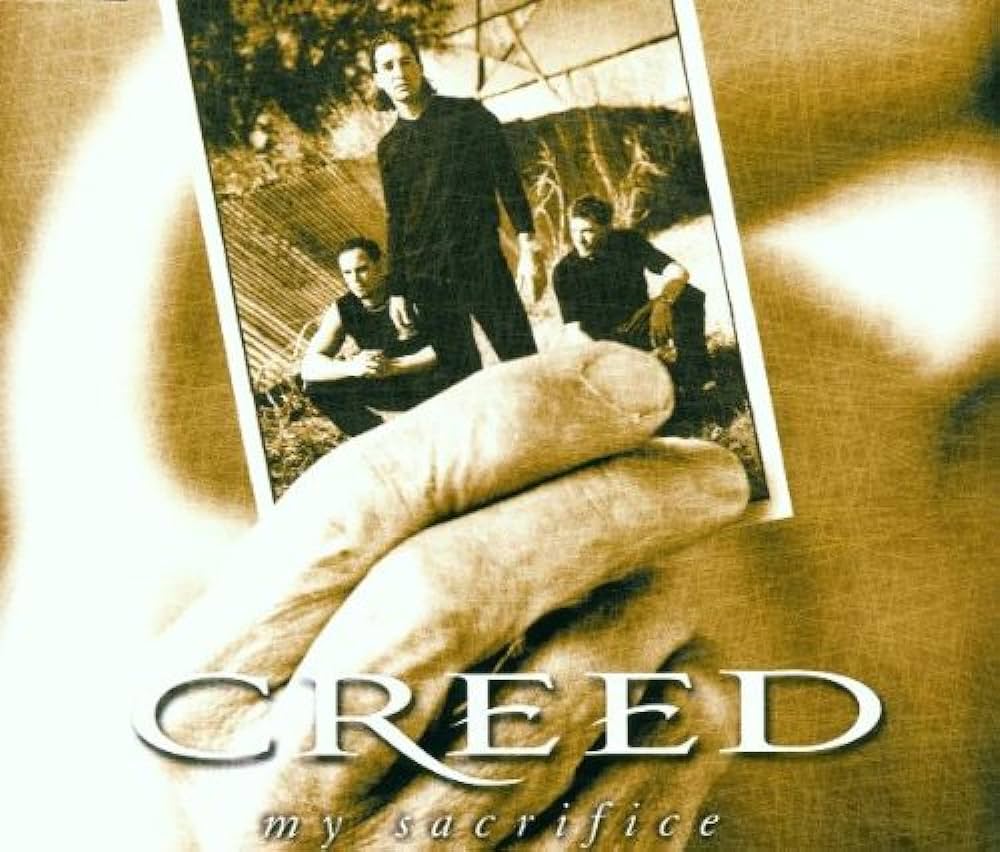
7. Creed
"My Sacrifice"
[Wind-up, 2001]
It’s rough being a Creed fan, what with the “worst band ever” meme, Scott Stapp being…like that, and just their generically safe post-grunge warbles. So, in other words, the perfect band for what was then known as the World Wrestling Federation to reach out to for the tribute packages that they would play every. Single. Episode.
With all that being said, I like Creed, and more so, I REALLY like “My Sacrifice.” Maybe it’s my nostalgia brain poisoned by wrestling telling me it’s a good song, but it’s a good song. Is it Creed’s best song? Not by a long shot, and yet, it’s memorable in all the best ways. Catchy hooks, melodramatic big guitar riffs, and saturation on one of the biggest platforms a late-nineties band riding the last waves of their relevance could ask for, with saccharine lyrics equating hanging out with other adult friends after some time apart to being a religious experience. Which, having been an adult once, yeah, it really can be!
They don’t make sappy post-grunge tracks like this, with vocalists who want to sound like Eddie Vedder but aren’t willing to commit to the bit reciting poetry that I could have written, all wrapped up in a neat bow of sappiness that America sorely needed post-9/11. Alright, I know I’ve been talking about this track with a heavy dose of irony, but in reality, despite how cheesy it is, this is one of those songs that is just good and doesn’t have to justify itself. The way it should be. — Terra Eyes
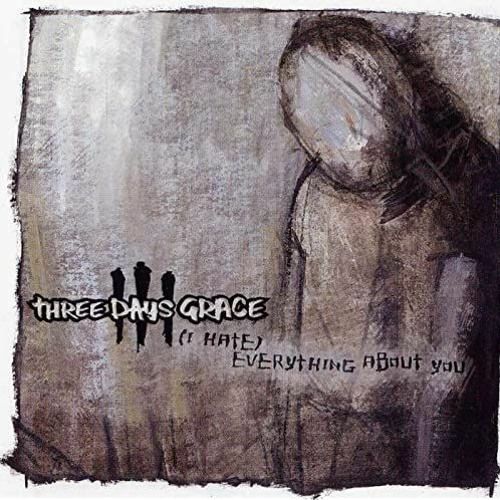
6. Three Days Grace
"I Hate Everything About You"
[Jive, 2003]
“Every time we lie awake / After eh-vrey- hit- we take.” How many radio DJs knew this was going to be a smash hit as soon as they heard it? It’s a fantastic hook to open a song with, I’m a huge sucker for upward stair-step melodies like that, but then you get to the chorus? Oh man. A pummeling drum fill and... “I! HATE! EV-EH-REE-THING ABOUT YOU!” It’s another one of this sub-genres’ many many “Heart Shaped Box” rip-offs but really juiced up with the kind of undeniable appeal that forces you to scream every single word right into your windshield, no matter who else in this McDonald's parking lot is watching. —HK
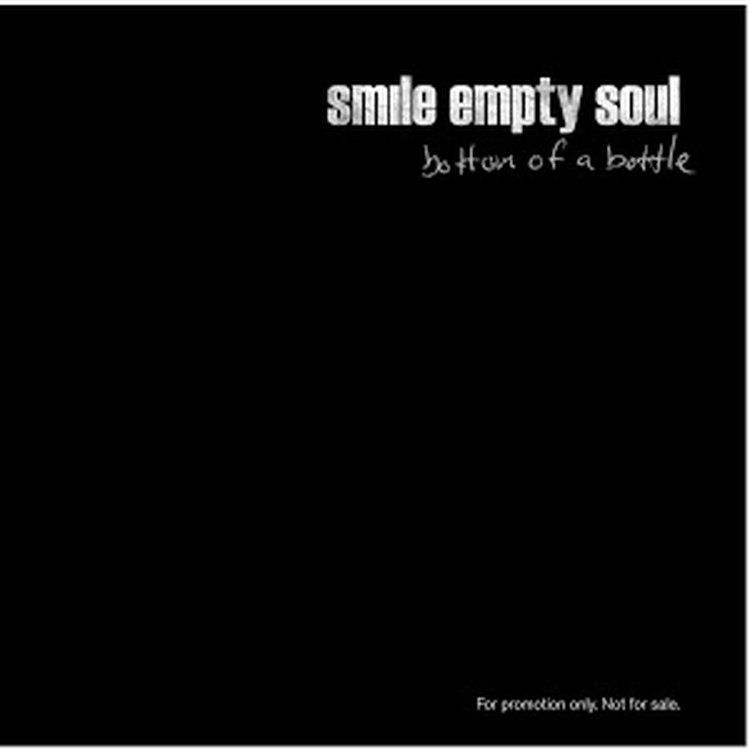
5. Smile Empty Soul
"Bottom of a Bottle"
[Lava, 2003]
Sean Danielsen wanted to be Kurt Cobain. There’s nothing remarkable about that, every post-grunge singer wanted to be Kurt Cobain, but Danielsen really wanted it and what separated him from the others was the strength of his intent; he was never going to reach Cobain’s genius but watching Danielsen pull on his restraints as hard as possible could be just as moving. “Bottom of a Bottle,” Smile Empty Soul’s forever definitive track, resonates because of how it mends the accessibility of Nevermind with the raw intensity of In Utero; pitched between the grasping heartache of “Been scared and lonely” with the triumphant claiming of mistakes chorus “I do it just to feel alive.” Every lyric on “Bottom of a Bottle” is sad - evoking the emotional gulf of young adulthood, watching your innocence being swallowed and replaced with a pile of responsibilities - but the overall effect is triumphant. The chorus is massive, and the riffs are catchy as all post-grunge needs to be, but it’s sincere and that’s what really counts. —HK
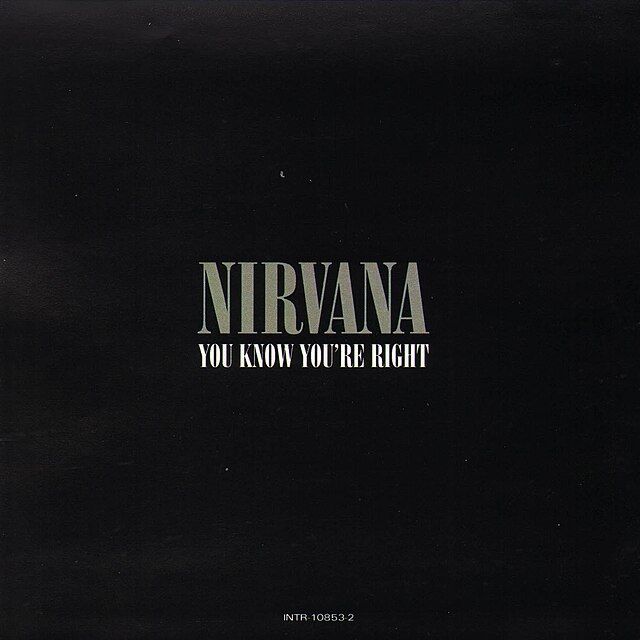
4. Nirvana
"You Know You're Right"
[DGC, 2002]
When “You Know You’re Right,” the final Nirvana single, was released officially on October 8th, 2002 it wasn’t the product of love and care that got it there. Instead, it had to be litigated out of a proposed Nevermind 10th anniversary box set by Courtney Love, who claimed it would be wasted on such a thing. Jim DeRogatis reported on the battalions of lawyers and contracts that were getting drafted to wage war over a song of this potential. It’s truly the most post-grunge way a grunge song could be produced: with all emphasis on rights and royalties and record sales with little consideration for much else. And if “You Know You’re Right” resembles Nirvana’s classic songs in sound it does not resemble them in spirit. Love lawyered up when she heard the track because it sounded like a smash, not a cult classic, with an eager chorus that dives for a hook as greedily as anything else on the radio at the time. Had Cobain survived, it’s not hard to imagine him penning something like this to put the Seethers and the Puddles of Mudds out of their misery. As is, it’s Cobain climbing down from heaven one last time to show the world how it’s done. — HK
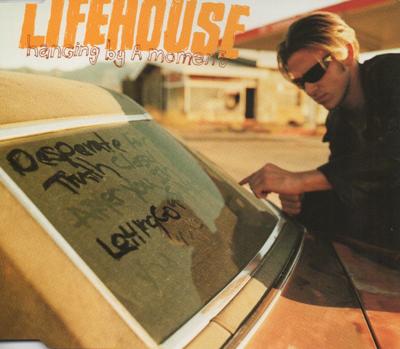
3. Lifehouse
"Hanging by a Moment"
[DreamWorks, 2000]
“Hanging By A Moment” arrived as grunge was transforming into post-grunge through massive glucose injections; if Cobain was uncomfortable with how pop-friendly Butch Vig made Nevermind the post-grunge generation of bands would have fired him for not making it pop enough. It was an era in which mixing board mavens like Bob Clearmountain and Brendan O'Brien held the keys to the kingdom, squashing each instrument until they worked as well on grocery store PAs as they did in arenas. So “Hanging By A Moment” was a massive hit with an equally massively mixed/mastered chorus to prove it yet defies its era by feeling like such a delicate little song in spite of all that. Tweak the song’s drop-d tuning to standard and “Hanging by a Moment” could have been a Built to Spill track. A lot of that has to do with the bowed upright bass that opens the song on a gently diving note and finishes it running the bow over the strings for a tactile sound that you could almost reach out and touch. Or the way the song dodges post-grunge sludge to dive into an exciting second verse jog that perks the tempo up and continues propulsively through the chorus. But for all that careful craft singer Jason Wade’s mini-Weiland impression is a puffed chest to quiet a hammering heart, evoking the impossibly short seconds between direct eye contact and a first kiss. — HK
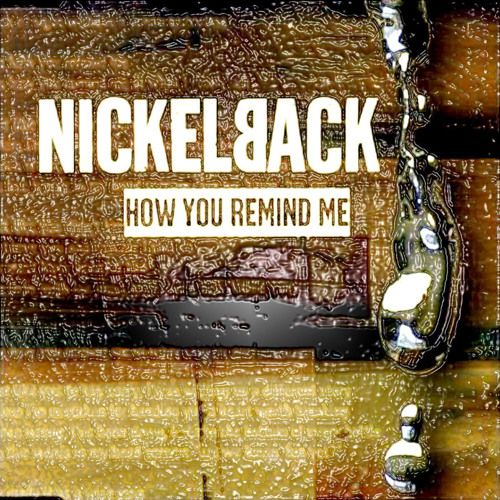
2. Nickelback
"How You Remind Me"
[Roadrunner, 2000]
“I Wanna Hold Your Hand” by The Beatles gets a lot of ink spilled upon it for being just an irresistibly good pop song so why not Nickelback’s “How You Remind Me”? Well, the most glaringly obvious reason is that The Beatles went on to be The Beatles while Nickelback would proceed to write some of the most nonsensical, gross rock songs to crowbar their way onto a pop chart, a band bad enough that even I - the CEO of nu-metal - cannot redeem them. I will, however, gladly go to bat for the utter pop brilliance that is “How You Remind Me.”
I draw the line connecting The Beatles and Nickelback not just for the amusing juxtaposition (though it is amusing) but because the two songs are sides of the same coin. “I Wanna Hold Your Hand” is a giddy rush of pre-pubescent affection where lyrics about getting 'high' can’t take away its ineffable innocence. “How You Remind Me” is caustic and bitter. A narrator so bad that living with him “must have damn near killed you.” “I Wanna Hold Your Hand” is a young couple on a Ferris wheel feeling for each other’s fingertips under a blanket, “How You Remind Me” is that couple 20 years later having a screaming match in their living room.
But if those are the faces, the coin is in how resplendent each song is with the hooks. I mean, wow, the sheer amount of top-shelf grade-a sixtuple-platinum hooks inside “How You Remind Me.” There is a reason it was the last hard-rock song to hit number one on the Hot 100. Its opening quatrain (“Never made it as a wise man / couldn’t cut it as a poor man stealing”) feels like it's always been around, natural enough that the song rushes into a first chorus so quick you didn’t even notice a verse hasn’t actually happened. That chorus builds and releases tension– “It’s not like you / to say sorry / I was waiting / on a different story” - so each lyric rises and falls right up to a small leap (“for handing you a heart worth breaking and I’ve-”) that explodes into the next big hook (“been wrong / I’ve been down”) with still two more to come (“these five words in my head…”, “Yeah, yeah; no, no.”) before the chorus is even over. It’s one of those pop songs you could strip for parts and build a seemingly infinite amount of other hits from. I know this is true because the song itself does this by layering the relatively insignificant “five words in my head” bit over the outro to create yet another hook. Hell, there’s a snare roll in here so distinct you could probably guess what song it's from in isolation. Even though “How You Remind Me” may not change your life on an emotional level, it can still force its way into your brain whenever it wants and, unlike one other Nickelback song we’ll get to soon enough, you won't even mind it’s in there. — HK
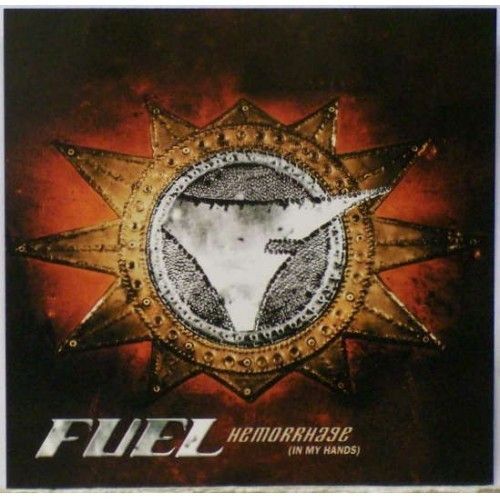
1. Fuel
"Hemorrhage (In My Hands)"
[Epic, 2000]
“I don’t know if I can do this tonight…” trails Carl Bell during Fuel’s 2001 VH1 Storytellers appearance. He’s trying to introduce the band’s smash hit “Hemorrhage (In My Hands)” and words are failing. “When I was younger my grandmother got cancer, by the time they had found it [...] it was much too late” he continues. “One particular day was a very bad day for her and my mother was sitting with her that evening, she turned to my mom and said ‘How do you die?’” The space between “die” and Bell’s next word is endless. It sounds like someone in the mixing booth cranked a dial labeled 'silence.' It’s heavy. Too heavy for pop radio — in fact, as Bell recounts the original version of the song is not what topped the alternative airplay chart for 12 weeks — instead the version of “Hemorrhage (In My Hands)” we know has been edited for public consumption but that same weight is in there.
Formed in 1989, Fuel broke out of Pennsylvania with “Shimmer” in 1997. “Shimmer” is pop-rock in a Matchbox 20 manner suffused with a grandiose sense of melancholy that could have been borrowed from Sunny Day Real Estate’s then-recent How It Feels to Be Something On. It’s glorious, handily giving anything on KROQ a run for its money and most of what was on critic lists of the era too. Singer Brett Scallions’ voice provides the most immediate element rescuing Fuel from the Verve Pipes and Fastballs of the world; a ragged howl that bears resemblance to Rob Thomas’ trembling yelp but dreams of Jim Morrison auditioning for Soundgarden. It portends his performance on “Hemorrhage,” a clenched first and steely eye, trying to find a way to lower his guard without exposing himself to attack.
What elevates “Hemorrhage (In My Hands)” well above the post-grunge of its day is this song could have come out in any decade and been a hit, just imagine peak-era The Who or Elton John having this. It is, at its core, a remarkably good piece of songwriting- stashing its biggest hook (“Don’t fall away”) in the pre-chorus so that even after the chorus proper has exploded again and again it still takes you by surprise. The song’s bridge builds and builds carefully to Scallion’s cry of “You neh-ver-ee-vahn...try” but then something surprising happens. Instead of exploding into a triumphant bridge or (shudder) key change, the song deflates, Bell issuing forth a guitar solo that sounds like a telephone line going dead, resetting the song’s momentum and letting that final chorus truly smash. “Hemorrhage” is fantastic songcraft, catchy in every way you’d hope for but compelling in construction.
If any single thing makes “Hemorrhage” truly post-grunge it’s that Carl Bell re-wrote the song to be less thematically weighty and more appropriate for radio play, a truism to the era’s 'success at all costs' ambition. Yet Bell is a talented enough songwriter that it doesn’t drain the lyrics of emotion, if anything his need to hide the song’s painful core behind an easy-to-swallow boy-girl story only makes it more potent. Once you find out what it really means, those lyrics about “dead actors faking lines” or the song’s central plea of “don’t fall away and leave me to myself” suddenly hit much different. “Hemorrhage (In My Hands)” is a beautiful, moving song and a vision of what post-grunge could have been; a meeting ground between modern pop power and grunge’s raw energy; classic songwriting chops, and real emotion. We didn’t get much of that out of post-grunge but thank god we got this. — HK
Worst:
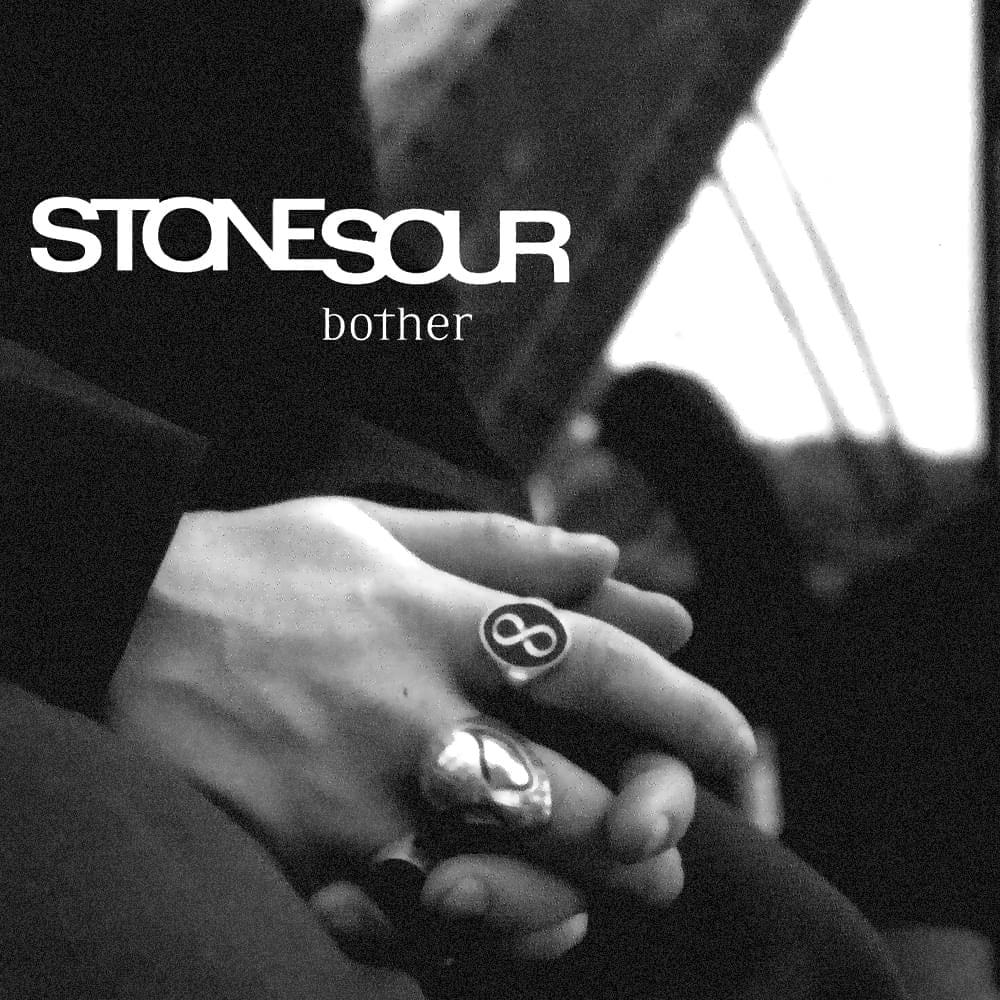
10. Stone Sour
"Bother"
[Roadrunner, 2002]
"Bother" is a song that means a whole lot to a whole lot of people. It has saved lives, repaired relationships, inspired real tears, and soothed many dark nights of the soul. I don't say this as a hedge against criticism, I say this because I know how much it can hurt when someone talks down on a song that means a lot to you, so please take the following with a grain of salt:
Fuck. This. Song.
Bad enough it's a bad song - with lyrics that would floor your high school creative writing teacher while the rest of the class put their heads down on their desk and wait for it to end ("I wish I had a reason / My flaws are open season") - worse that it pried Corey Taylor away from Slipknot and elevated him to maskless, tortured poet status. That taste of respectability would trickle back into his work with the religiously hard driving 'Knot, whose subsequent albums would all contain at least one momentum deadening ballad. On its own, "Bother" is a sullen lump of a tune but, for infecting one of nu-metal's purest acts with post-grunge sewage, it's worse. — HK
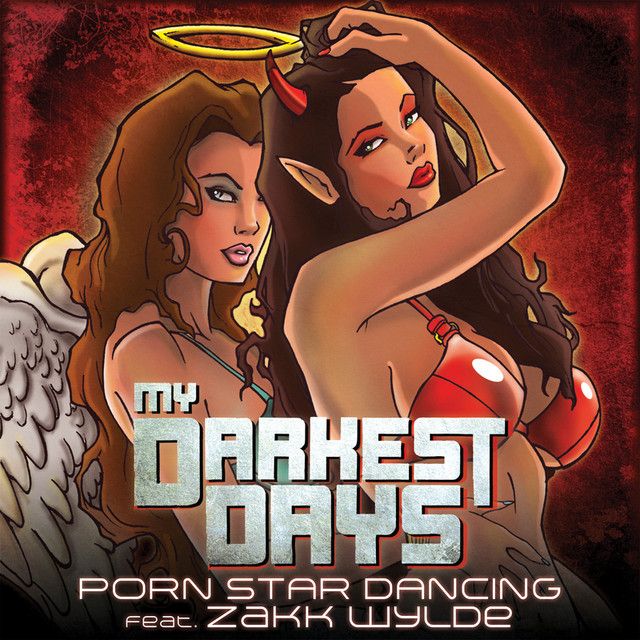
9. My Darkest Days
"Porn Star Dancing featuring Chad Kroeger, Ludacris and Zakk Wylde"
[604, 2010]
The further from the post-grunge glory days you got the more shameless you had to be to notch any kind of a hit, even if that means loading your afternoon shift strip club banger with guest appearances from Ludacris and Chad Kroeger and Zakk Wylde, so he can write weedlie-wee guitar solos for challenging Guitar Hero charts, and then dumping a whole chum bucket of cheap electronic effects possibly scraped out of Lil Wayne’s “Lollipop” on top. “Brandy just got way too much baggage / And that shit just gets old” goes the wretched second verse. “Porn Star Dancing” is something like the bottom of the entire grunge barrel. If Mudhoney had known all the way back in 1990 that the genre “Touch Me I’m Sick” was about to launch would wind up at “Porn Star Dancing” you have to wonder if they would have scrapped the whole operation right then and there. — HK
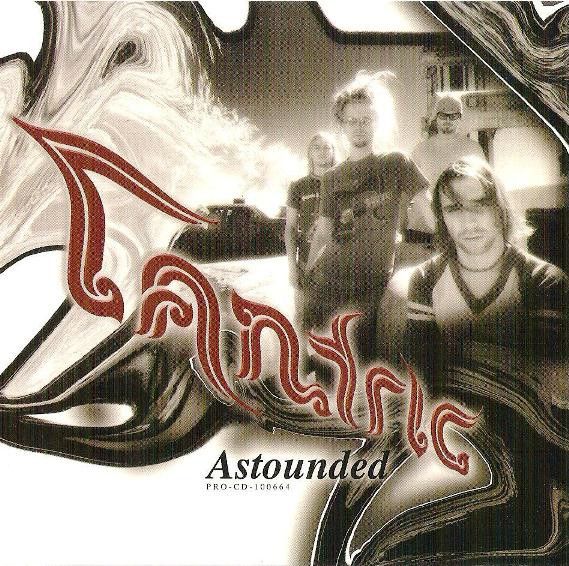
8. Tantric
"Astounded"
[Maverick, 2001]
Tantric lead singer Hugo Ferreira sounds like someone doing a parody of Will Sasso’s parody of Scott Stapp. His baritone twisting and maiming every vowel, every consonant until you start to wonder if Pearl Jam classics like “Alive” and “Even Flow” were worth it if they led to this. In addition to that Ferreira and Todd Whitener rip off Layne Staley and Jerry Cantrell’s singing styles with zero percent originality and 100% reliance on “HEAY-AY-AYYYYY”s and “YEEAUH”s for filler. So why “Astounded” over their hit “Breakdown”? “Astounded” happens to contain one of pop music’s most bizarre refrains: “All you stupid fuckers walk around astounded.” What?? I thought choruses were supposed to be relatable, what the hell did I do? Nothing, because “Astounded” was made for an audience of one; Travis Meeks, the ego-tripping Days of the New frontman who accidentally created Tantric when he fired his band and they formed this one. It’s an awfully bitter way to write music, to get back at one guy. The only thing that ever astounds me about Tantric is how a band whose legacy is a minor rock hit and a gold record could have twenty-two former members. —HK
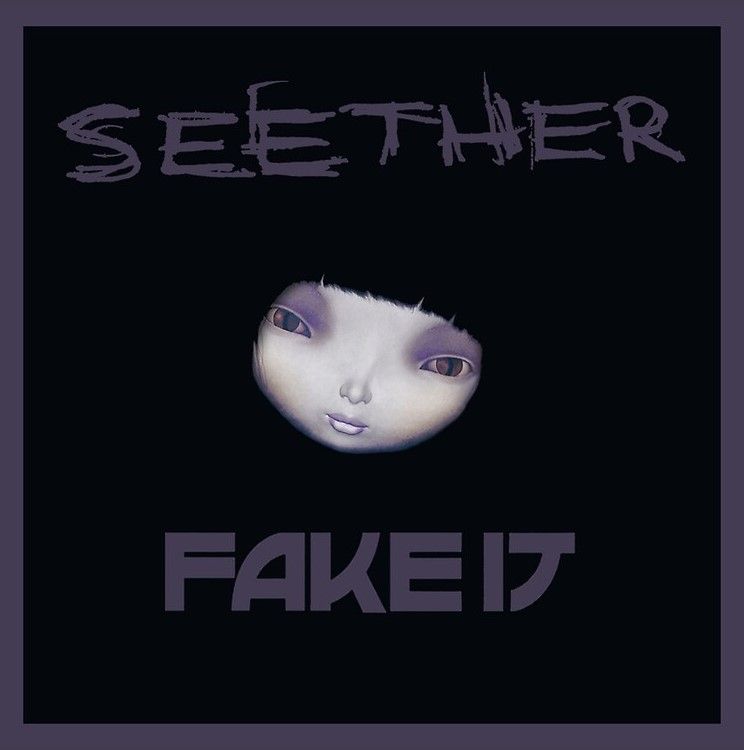
7. Seether
"Fake It"
[Wind-up, 2007]
The world’s most famous Kurt Cobain impersonator lecturing us on selling out. “Who's to know if your soul will fade at all? / The one you sold to fool the world” chides lead singer Shaun Morgan before launching into a series of bridges, choruses, and refrains strung together without any higher aspirations than being a hit single, which it was. It’s awfully rich for someone who wrote “Driven Under,” the most galling Nirvana rip-off in a genre full of ‘em, to “feel so raped” but I guess that’s why he can “fake with the best of anyone.” — HK
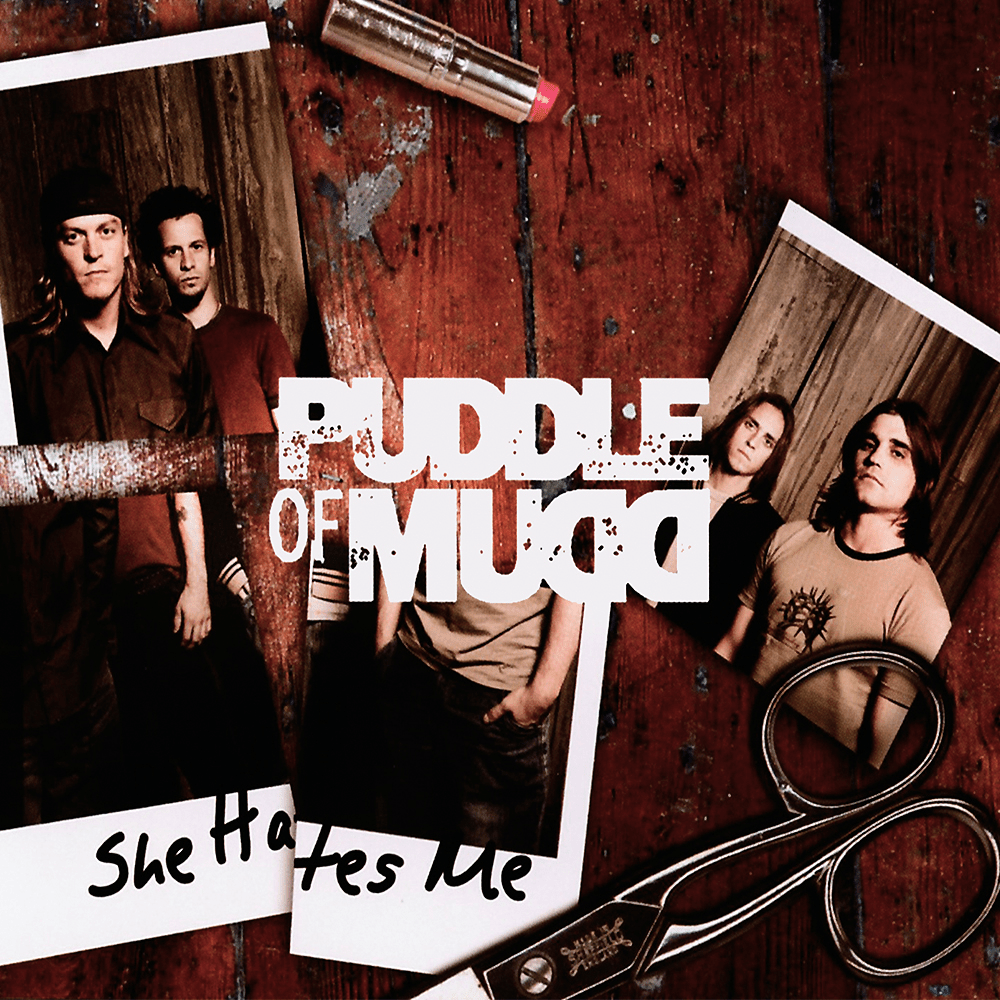
6. Puddle of Mudd
"She Hates Me"
[Flawless, 2001]
Puddle of Mudd has always been more interesting as a thought experiment than as music; imagine Kurt Cobain surviving the 90s, watching nu-metal happen, then coming back in 2001 to make hit singles at all costs, integrity be damned. In this universe “She Hates Me” would be the label bosses at Flawless informing Cobain the feminism has gotta go. And really lyrics like “She was queen for about an hour / After that, shit got sour” aren’t so much offensive as they are inert. There’s no passion in them or the delivery, which ranges from a fake-Aberdeen sneer to a digitally enhanced yell, and a song that’s supposed to sound like trashy fun ends up boring, its tossed off good times outro sounding like a suggestion by a record exec. Only once have I done this song at karaoke, you’d think it'd be a blast but it wasn’t. No raised glasses singalong, just some gentle applause at conclusion. That’s when it really struck me what a bitter, boring, caustic song “She Hates Me” is, I couldn’t even get a dive bar in Florida into it. Then the next guy did “What’s Up?” by 4 Non Blondes and everyone lost their shit. Lesson learned. — HK
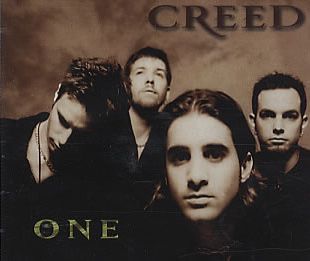
5. Creed
"One"
[Wind-up, 1998]
This is just what we were looking for from Creed; a song asking, hey, who are real racists today? “Society, blind by color / Why hold down one to raise another? / Discrimination, now on both sides.” Amazing. I had never considered Donald Trump was quoting Scott Stapp when condemning “both sides” at Charlottesville but now must. Like 'All Lives Matter,' just glance at the lyrics to “One” and they may seem innocuous (“The goal is to be unified”) but with even a tiny consideration are revealed to be an ignorant heap of cliches. Calls for unity, to stop the hatred, are at most a call to maintain the status quo and, at worst, a neat way to check yourself out of the whole situation. Why try to fix anything if it only provokes more hatred? Take my hand! Be my brother! Then the song reveals its true intent during the chorus: “I feel violent, I feel alone / Don't try and change my mind.” Now that is honest. A two sentence manifesto anticipating the rampaging hatred we now have to live with everywhere, every day, all the time. —HK
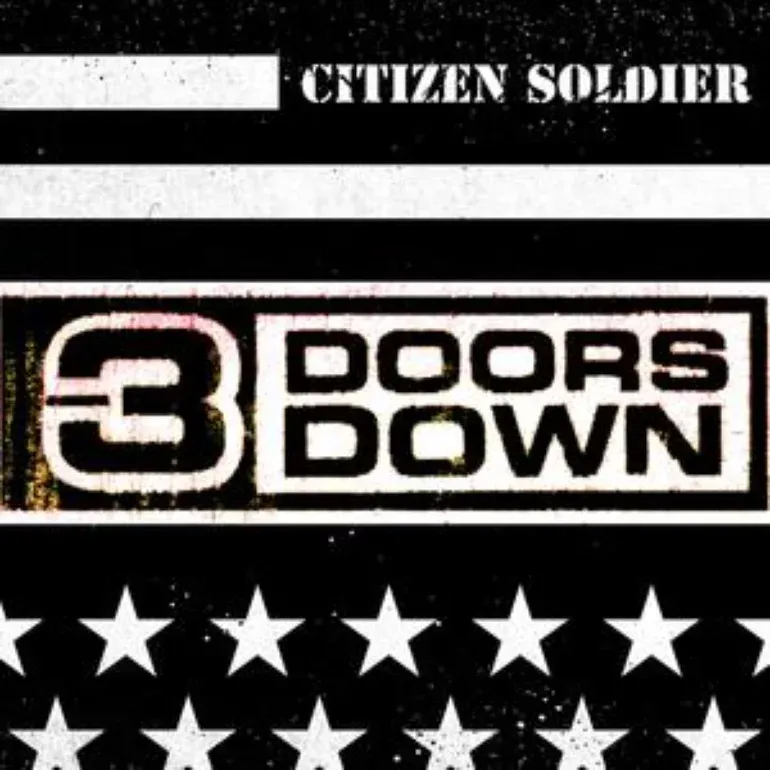
4. 3 Doors Down
"Citizen/Soldier"
[Universal, 2007]
When Donald Trump put together his 2016 inauguration, an event that has four subheadings on Wikipedia under the section title 'Investigations,' he managed to snag the likes of Lee Greenwood (who, presumably, was not booked to perform selections from 1984’s You've Got a Good Love Comin'), Toby Keith, DJ Ravidrums, 'The Piano Guys' and 3 Doors Down. While I cannot speak for DJ Ravidrums or 'The Piano Guys,' it’s easy to assume the fanbases of Lee Greenwood, Toby Keith and 3 Doors Down survived that debacle intact. Greenwood speaks for himself, as does the late burp aficionado Toby Keith, though 3 Doors Down’s slide from drive-time radio staples to bootlick-grunge extraordinaires takes a second. Their first album, 2000’s The Better Life, got by on big hooks and better timing with the politely rockin’ hit “Kryptonite” making waves on pop radio but when follow up Away from the Sun timed two smash ballads with the beginning of the Iraq War, becoming anthems for troops abroad missing home, 3 Doors Down set about endlessly touring military bases and yee-haw states. This marketing strategy hits bottom with 2008’s “Citizen/Soldier,” literally an advertisement for the National Guard. And without speaking to the quality of the National Guard themselves, collaborating with the military-industrial complex for a recruitment campaign has gotta be one of the most humiliating things a rock band has ever done. It is also one of the more crazy ass moments in grunge history, a genre founded on inclusivity and integrity reduced to a music video shot on a National Guard Base and screened in movie theaters that includes depictions of soldiers fighting in the Middle East (I thought the National Guard was national?) and the… uh… Revolutionary War? Propaganda casts a broad net I suppose. Somehow, after all that we’ve barely even touched on the song itself. It sucks. — HK
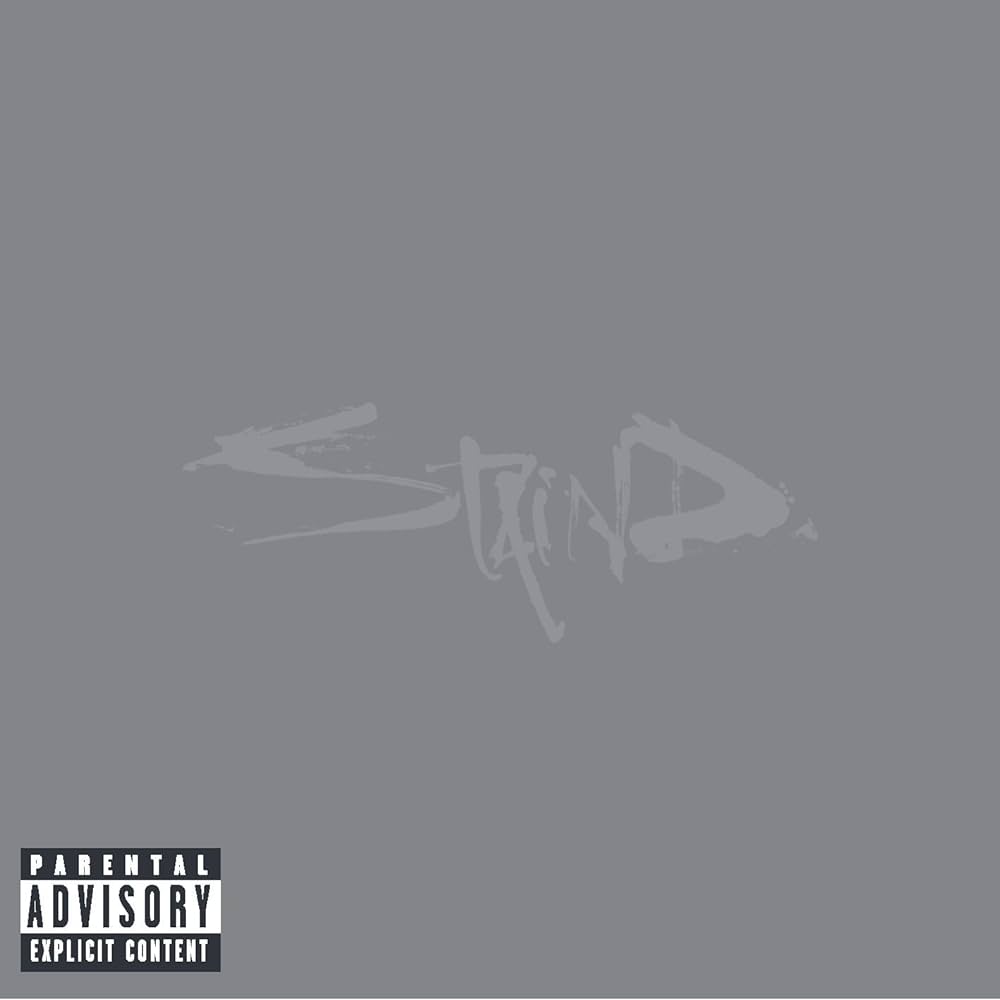
3. Staind
"Layne"
[Elektra, 2003]
Layne Staley of Alice in Chains was one of music’s most distinctive vocalists. The chilling minor key harmonies he and Jerry Cantrell perfected together are often imitated, never bettered. Speaking of imitated; Staind’s “Layne” is, in theory, a tribute to the late singer but in practice a parody. Along with Godsmack, Staind profited the most off stealing Alice in Chains’ musical and melodic styles and, while this could occasionally produce a catchy tune, on “Layne” it brutally desecrates the grave of a singer who had died only the year before. It launches straight into a kidney stone strain attempt at harmony ("HUUNNNN-HUUUUUUNHHHH") so off-key you can practically hear the Autotune plugin seizing up and crashing trying to fix each note. Finally, we make it to some lyrics, it’s not an improvement: “I heard today that you were gone / I had to stop and sing along.” Sing along? Sing along with what? Was Layne Staley’s death announced to you via town crier? Did you off-key harmonize with him as he went about his grim duty? The bridge, in excellent Aaron Lewis-ian fashion, recasts the late singer’s music as a neat gift all for him: "The words you said / You made me feel like they were all for me”; the “all for me” part sounding less like reverence and more like a kid sweeping all the Halloween candy into a big pile to make sure his little brother doesn’t get any. It’s post-grunge in the most ghoulish sense of the word, a reminder of both who and what we lost on the journey from Layne to “Layne.” —HK
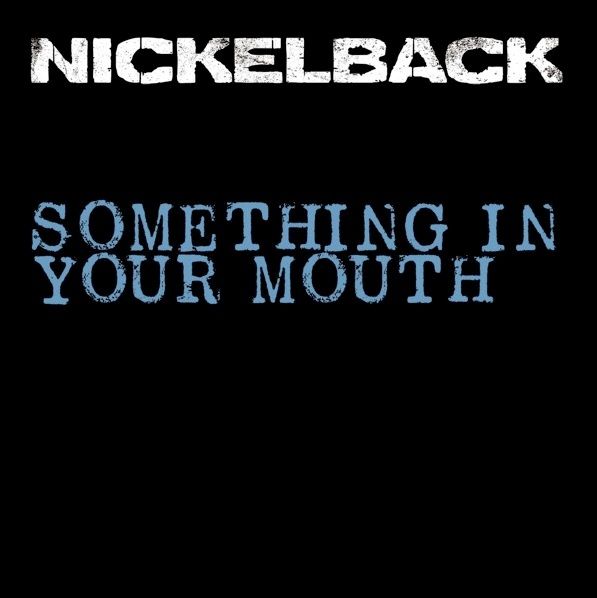
2. Nickelback
"Something In Your Mouth"
[Roadrunner, 2008]
Nothing cures Nickelback sympathies like the band’s strip club anthems. If any one thing puts Creed above their partners in crimes-against-humanity Nickelback, it’s that Creed knew to stay in their lane. Meanwhile here’s Nickelback, brace yourself: “I love the way you dance with anybody" Okay... "and tease them all by sucking on your thumb” Oh… “You're so much cooler when you never pull it out” Oh no… “Cause you look so much cuter” Oh god… “with something” No no no no no… “in your mouth!!” In some ways, unlike ISIL, you do gotta kinda hand it to them; you didn’t think a song could exist that makes “Crazy Bitch" sound subtle, “Porn Star Dancing” classy, “Get Stoned” romantic, yet here it is. Punctuating verses with “COME AWN!” or breaking into a rough parody of rapping during the pre-chorus and serving the whole thing on a platter of limp dick riffage and stainless steel production that sounds like all the guitars were run directly into a USB port; “Something In Your Mouth” is a destruction derby with no crashes, awful but airless, the soundtrack to Buffalo Wild Wings happy hours that get rowdy after your aunt maces a guy for spilling Bud Light all over her new white Valentino bag COME AWN! —HK
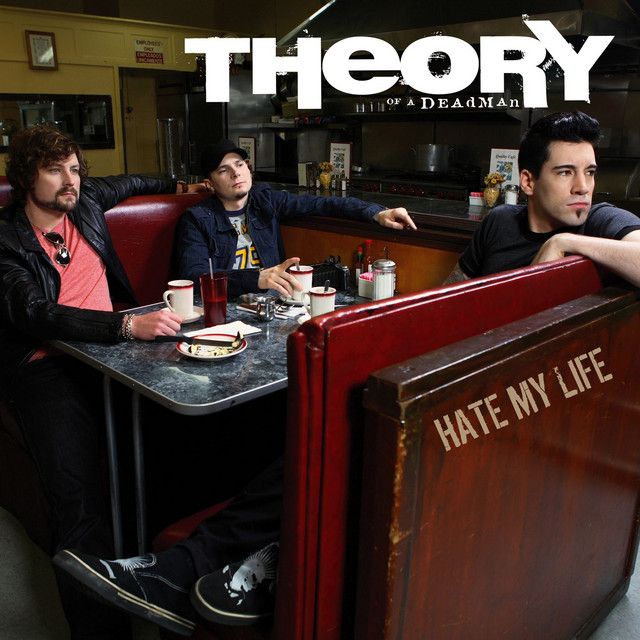
1. Theory of a Deadman
"Hate My Life"
[Roadrunner, 2008]
Every single second of Theory of a Deadman’s “Hate My Life” is like someone smashing your big toe with a ball pein hammer over and over and over while he looks you dead in the eyes and says “It’s just a joke dude can’t you take a joke I’m just joking.” So, “Hate My Life” is a joke. But it’s the kind of insufferably 'edgy' joke that 'comedians' whining about how mean everyone is being to them on Netflix specials called “CANCEL THIS!” specialize in. But the problem with the 'kidding' defense is that once you end up in that indigent pose it’s probably not because the joke was too 'edgy,' it’s because it wasn’t funny. I don’t need someone to explain the set-up/punchline behind “I hate that I can't tell when a girl's underage / And how when I tell her she's a nice piece of ass then her daddy punches me in the face.” There’s no context where that’s works, just imagine delivering it at an comedy club's open mic night, but all of “Hate My Life” is like this, a series of actual truths delivered through a smirk and a shitty goatee. Singer Tyler Connolly opens the song straight away with “So sick of the hobos, always beggin’ for change / I don't like how I gotta work and they just sit around and get paid.” It totally flops as any kind of 'joke' because Connolly means it. He absolutely hates “the hobos” and believes they’re just lazy. He definitely means it too when he complains “[his] wife is always up [his] ass,” an ex-wife (divorced in 2011) that was, mind you, literally in the music video while he sang this. It just goes on and on, a grim slog through every one of Connolly’s petty grievances, a series of bitter tweets that get sideways laugh-cry emoji replies from the driver’s seat wraparound sunglasses selfie people. Somehow this shit came out all the way in 2008 on Roadrunner Records, the whole nu-metal/post-grunge apparatus crashing and burning as Connolly tries to spin the song into a sing-along anthem: "So if you're pissed like me / Bitches (?) here's what you've gotta do / Put your middle fingers up in the air / Go on and say ‘fuck you.’” I’m not offended by “Hate My Life.” I’m not triggered or outraged or incensed at Connolly’s whining at how hard his incredibly easy job is. I’m bored. I’m not laughing either. —HK




